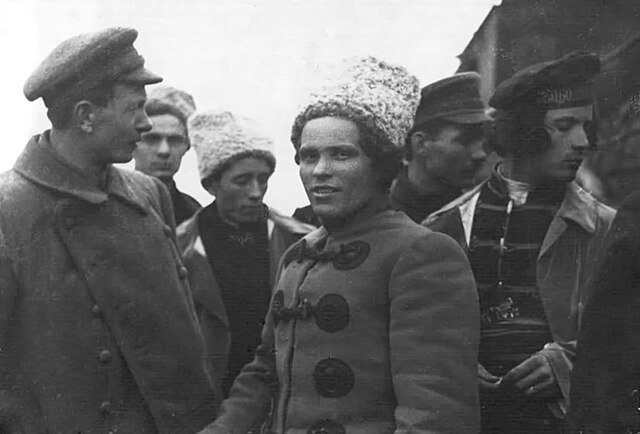Emma Goldman was a Lithuanian-born anarchist revolutionary, political activist, and writer. She played a pivotal role in the development of anarchist political philosophy in North America and Europe in the first half of the 20th century.
Goldman, c. 1911
Emma Goldman's family in St. Petersburg, Russia in 1882. From left to right: Emma, standing; Helena, seated, with Morris on her lap; Taube; Herman; Abraham.
Emma Goldman in 1886
Goldman enjoyed a decades-long relationship with her lover Alexander Berkman. Photo c. 1917–1919.
Anarchism is a political philosophy and movement that is against all forms of authority and seeks to abolish the institutions it claims maintain unnecessary coercion and hierarchy, typically including the state and capitalism. Anarchism advocates for the replacement of the state with stateless societies and voluntary free associations. As a historically left-wing movement, this reading of anarchism is placed on the farthest left of the political spectrum, usually described as the libertarian wing of the socialist movement.
Wilhelm Weitling is an example of a writer who added to anarchist theory without using the exact term.
Zeno of Citium (c. 334 – c. 262 BC), whose Republic inspired Peter Kropotkin
Nestor Makhno seen with members of the anarchist Revolutionary Insurgent Army of Ukraine
Rojava's support efforts for workers to form cooperatives is exemplified in this sewing cooperative.








